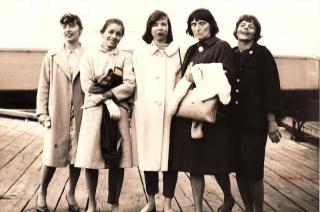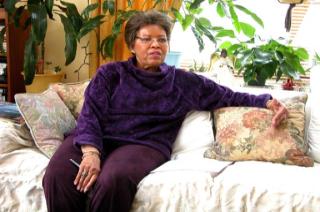Martha's Vineyard NAACP
2007
On Sunday afternoon, a plaque will be unveiled in West Tisbury in celebration of a small group of town women who, nearly 50 years ago, took a little risk to play a part in a glorious, heroic and sweeping change in our national history.
2005
Marie Allen is at home in the comfortable study that she built at her Munroe avenue house in Oak Bluffs: a place to read books and listen to the blues, where a carved wooden giraffe peers from behind the couch, African figurines line a tall bookcase and her granddaughter's stuffed toy dog rests on a cushion.
Mrs. Allen also is at home on Martha's Vineyard: an Island where she was married, where her children took their first steps, where her own daughter was married and where she retired about six years ago.
2001
It takes dedication and hard work to achieve Dr. Martin Luther
King's goals and visions.
Which is exactly what some Vineyarders are willing to offer.
1997
The Martha's Vineyard NAACP this week called for the immediate dismissal of John Dillon, a Tisbury police patrolman who has been charged with racism by a fellow officer.
In a three-page letter to the Gazette, the NAACP lists a series of alleged offenses by Mr. Dillon, highlighted by an incident in which the officer parodied stereotypical African-American speech when rewriting a computer document authored by Theophilus M. Silvia 3rd, the town's only year-round African-American patrolman.
1992
1966
Kivie Kaplan, national president of the N.A.A.C.P., who was recently vacationing in Vineyard Haven, took off on July 29 for a five day trip to New Orleans for the association’s Louisiana summer project in which more than a hundred volunteers from all over the country, boys and girls, Negro and white, will work from one to five weeks, paying their own expenses. A few will come from other countries.



